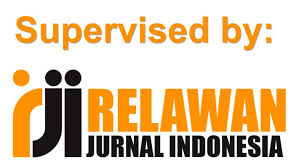Analysis Of Teacher Competency From An Islamic Perspective In The Implementation Of The Independent Curriculum In Vocational Schools
DOI:
https://doi.org/10.37092/el-ghiroh.v23i1.1121Keywords:
Teacher Competency, Islamic Perspective, Implementation of the Independent Curriculum, Vocational SchoolsAbstract
This research is about the competency of PAI teachers in implementing the independent curriculum. Many teachers still face difficulties in understanding and applying the new concepts promoted by this curriculum. Therefore, the aim of this research is to find out how competent teachers are in implementing the independent curriculum as well as the supporting and inhibiting factors. This research uses field research, with a qualitative approach. Data was collected by observation, interviews and documentation. Then it is analyzed through data collection, data reduction, data presentation and drawing conclusions. In implementing the independent curriculum, teachers use various teacher competencies. For example, pedagogical competence has five roles, namely the ability to understand the character of students, the ability to create learning designs, develop a curriculum, the ability to carry out educational learning and the ability to evaluate learning outcomes. And professional competence has five roles, namely the ability to understand educational principles, the ability to understand teaching materials, compiling teaching programs, implementing programs in the field of education and the ability to evaluate the results of the teaching and learning process. And there are supporting factors such as existing facilities and infrastructure, improving teacher qualifications, innovation in teaching, and support from the school and there are also inhibiting factors, namely, poor time management, differences in student character, and limited references.
Downloads
References
Amir, Abdul. 2019. 4 Kompetensi Guru Profesional. Yogyakarta: Cv Budi Utama.
Dilfa, Alrizka Hairi, dkk. 2023. Pengembangan Dan Implementasi Kurikulum Merdeka. Malang:Literasi Nusantara Abadi group.
Fitria, Happy, dkk. 2019. Upaya Meningkatkan Kompetensi Guru Melalui Pelatihan Penelitian Tindakan Kelas, Abdimas Unwahas, Vol. 4, No. 1, April.
Hawi, Akmal. 2013. Kompetensi Guru Pendidikan Islam. Depok : Raja Grafindo Persada.
Hayudityas, Beatrix, dan Herry Sanoto. 2021. Hubungan Antara Supervisi Akademik Dengan Kompetensi Profesional Guru Sekolah Dasar, Jurnal Studi Guru dan Pembelajaran, Vol. 4, No. 1, Januari - April https://e-journal.my.id/jsgp/article/view/527
Ihsan, Muhammad. 2022. “Kesiapan Guru Terhadap Implementasi Kurikulum Merdeka Belajar” , Seri Publikasi Pembelajaran, Vol. 1 No. 1 https://doi.org/10.20527/tmkm.v1i1.428
Ismail, Muh. Ilyas. 2010. Kinerja dan Kompetensi Guru Dalam Pembelajaran, Lentera Pedidikan, VOL. 13 NO. 1 Juni https://doi.org/10.24252/lp.2010v13n1a4
Moleong, Lexy J. 2017. Metodologi Penelitian Kualitatif, Edisi Revisi. Bandung: Rosda Karya.
Safitri, Dewi, dkk. 2023. Kompetensi Guru PAI Dalam Menerapkan Kurikulum Merdeka Berbasis Digital, Jurnal Pendidikan dan Studi Islam, Vol. 1 No. 1 Juli. http://ejurnalnurmagemilang.com/
Sasmita, Mira. 2021. Persepsi Siswa Tentang Kompetensi Pedagogik Guru di SMK Harapan Bangsa Panti, Jurnal Pendidikan Tambusai, olume 5 Nomor 2 Tahun. https://jptam.org/index.php/jptam/article/view/1649
Saud, Udin Syaefudin. 2017. Pengembangan Profesi Guru. Bandung: Penerbit Alfabeta.
Sugiyono,. 2020. Metode Penelitian Kualitatif Untuk Penelitian Yang Bersifat Eksploratif, Eterpretif, Interaktif, dan Konstruktif. Cet; ke-3. Bandung : Alfabeta.
---------------,. 2019. Metode Penelitian Kuantitatif, Kualitatif, R&D. Bandung: Alfabeta.
Wahyuningtyas, Dessy, dkk. 2023. Pembelajaran Berdiferensiasi Untuk Implementasi Kurikulum Merdeka. Malang: Literasi Nusantara Abadi Grup.
Downloads
Published
How to Cite
Issue
Section
License
Copyright (c) 2025 Aisyah Raihan Fadillah, Fitriyani Fitriyani, Joni Helandri, Muhammad Yunus

This work is licensed under a Creative Commons Attribution-NonCommercial-ShareAlike 4.0 International License.










